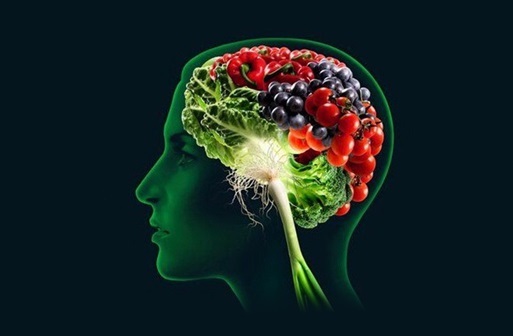Nikhil Prasad Fact checked by:Thailand Medical News Team Feb 07, 2025 2 months, 6 days, 5 hours, 33 minutes ago
Medical News: Understanding the Link Between Diet and Glioma Risk
A recent study has investigated whether certain dietary habits may influence the risk of glioma, a type of brain tumor. Researchers from the State Key Laboratory of Oncology in South China, Guangdong Provincial Clinical Research Center for Cancer at Sun Yat-Sen University Cancer Center in China conducted this study using a genetic analysis method called Mendelian randomization. Their findings provide valuable insights into the role of diet in brain tumor development.
 Study Links Certain Foods to Increased Risk of Brain Tumors
Study Links Certain Foods to Increased Risk of Brain Tumors
Gliomas are one of the most common and aggressive brain tumors in adults. They include glioblastoma (GBM), which is particularly severe, and non-GBM gliomas, which are less aggressive. The causes of gliomas are not fully understood, but researchers believe that environmental and lifestyle factors, including diet, may play a role. This
Medical News report explores the study’s findings and what they mean for public health.
Key Findings of the Study
The study analyzed genetic data related to 22 dietary factors to determine if they had any causal relationship with glioma risk. Researchers found significant associations between certain foods and the likelihood of developing glioma:
-Cooked Vegetables and Glioblastoma (GBM): Surprisingly, the study found that a higher intake of cooked vegetables was linked to an increased risk of glioblastoma. Researchers suggest that this might be due to harmful substances formed during high-temperature cooking, such as nitrosamines and acrylamide, which are known to be carcinogenic.
-Beer and Non-GBM Gliomas: The study also revealed a strong link between beer consumption and a higher risk of non-GBM gliomas. Beer contains certain harmful compounds, including mycotoxins and nitrosamines, which could contribute to brain tumor development.
-Alcohol and Non-GBM Gliomas: Interestingly, alcohol consumption (excluding beer) appeared to have a protective effect against non-GBM gliomas. Researchers speculate that alcohol may influence immune responses in a way that helps prevent tumor formation. However, the long-term risks of alcohol consumption still need to be carefully considered.
How Cooking Methods Might Affect Cancer Risk
One of the most unexpected findings was the link between cooked vegetables and glioblastoma. While vegetables are generally considered healthy, the cooking process can produce harmful substances. High-temperature cooking methods like frying or roasting may generate carcinogenic compounds such as nitrosamines and lipid oxidation products, which could contribute to cancer development. The researchers suggest that further studies should examine whether certain cooking methods pose a greater risk than others.
The Potential Risks of Beer Consumption
The strong association between beer consumption and non-GBM gliomas
raises concerns about potential carcinogens in beer. Beer can contain harmful chemicals such as acrylamide, heterocyclic amines, and mycotoxins, which may contribute to tumor growth. Additionally, beer’s high sugar content and fermentation byproducts could alter gut bacteria in ways that promote inflammation and cancer risk. These findings highlight the need for more research into the long-term effects of beer on brain health.
What This Means for Public Health
The findings suggest that dietary habits may influence brain tumor risk in ways that were previously unknown. While more research is needed to confirm these results, the study offers important takeaways:
-Avoiding excessive beer consumption may help reduce the risk of glioma, particularly non-GBM types.
-The potential harmful effects of high-temperature cooking should be further studied, and people may benefit from consuming more raw or lightly cooked vegetables.
-While moderate alcohol consumption showed a protective effect in this study, individuals should weigh the overall health risks associated with drinking alcohol.
Conclusion
This research sheds new light on the potential role of diet in glioma risk. The findings suggest that cooked vegetables and beer consumption may increase the likelihood of developing certain types of brain tumors, while alcohol may have a protective effect in specific cases. However, more studies are needed to fully understand these relationships and to determine whether dietary changes could reduce the risk of gliomas. Until then, maintaining a balanced diet with a variety of healthy foods remains the best approach for overall well-being.
The study findings were published in the peer-reviewed journal: Nutrients.
https://www.mdpi.com/2072-6643/17/3/582
For the latest on Brain Tumors, keep on logging to Thailand
Medical News.
Read Also:
https://www.thailandmedical.news/news/alcohol-and-prostate-cancer-risk
https://www.thailandmedical.news/news/alcohol-and-cancer-risk-new-insights-on-a-complex-link
https://www.thailandmedical.news/news/breaking-medical-news-international-study-shows-that-young-individuals-who-got-ct-scans-have-an-increased-risk-of-developing-cancer
